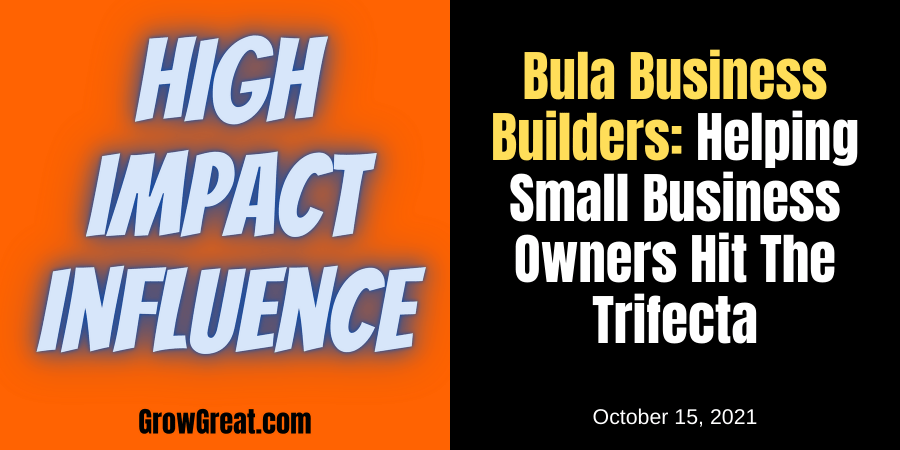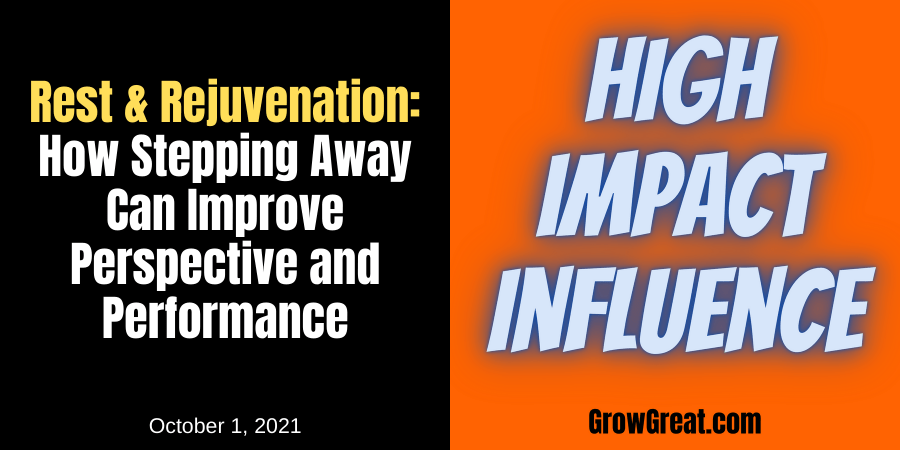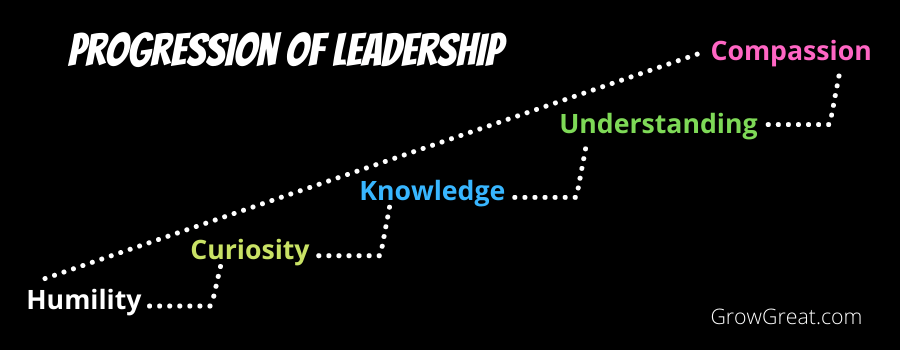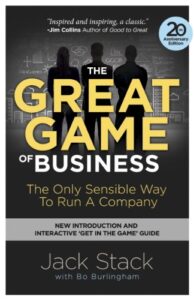Bula Business Builders: Helping Small Business Owners Hit The Trifecta
Podcast: Play in new window | Download (Duration: 23:07 — 21.2MB)
Subscribe: Apple Podcasts | Spotify | RSS | More
Every night while sitting in the front of the TV I’d open a large accordion file where I kept manufacturers’ literature on high-fidelity stereo gear. The file was alphabetized with a slot for every letter. Advent speaker literature went into the A. Thorens turntables into the T slot. I started this habit while in junior high because I loved music and the gear used to play my favorite records. All this cool equipment was far beyond my means, but nightly I’d look at all the features and specs and dream. I’d visit stereo stores as often as possible to hear systems I could only dream about owning. Glorious! That’s what it was to sit down in a listening room to hear a record the way it should be heard. Full fidelity. I’d leave each store with whatever new product literature was missing from my growing collection.
A passion for music and stereo gear propelled me to walk into a stereo store when I was 16. No selling experience. No real work experience except manual labor for my dad’s business, home construction. Stepping and fetching mostly and cleaning completed construction. Not exactly the kind of work that would make your heart rate increase, except due to exhaustion.
Somehow I wound up in front of the owner of this stereo store – a store with four sound rooms, each armed with those 70s fixtures, sliding glass patio doors. Sitting in his office he began to grill me about products, including products his store didn’t carry. I quickly was able to answer all his questions, including the only one I still remember. “What do the model numbers of Marantz receivers represent?” No problem. I knew the answer, “Their wattage per channel.” He hired me right there. My first real job working for a small business owner. Straight commission. I was hooked.
In 2007 I formally began to serve small business owners. Years of being in the trenches of working to achieve the trifecta of business building compelled me to serve “my people.” People with whom I have more in common than probably any other segment of business people. Small business is close to my heart. Admittedly, I’m biased heavily in favor of the entrepreneur working hard to make a difference in their part of the world.
In 1984 I was 27 years old. I was a couple of years into my first #1 leadership role running a business with $14M in annual revenue. The trifecta of business building became a reality sitting in my office one morning battling the issues of the day. As I pondered a variety of challenges that day I had a rare epiphany, all my challenges in running a small business could be distilled into three categories – the three things that were most important in operating a successful enterprise.
Getting new customers
Serving existing customers better
Not going crazy in the process
Nothing else mattered. I began to think of my business that way. Every action fits into one or more of the categories. From purchasing to merchandising, to cash flow management, to profit margins, to personnel, to operational efficiencies…you name it, I could instantly make it fit.
Over the years as I encountered other operators of small businesses I learned that we shared similar frustrations and challenges. But I also learned that if I was going to achieve stellar results – I was never satisfied with being good…I wanted to be remarkable – I’d have to do something others weren’t doing. Perhaps I’d have to avoid doing what others were doing. Sometimes you have to be like Captain Kirk of Star Trek and go where nobody has gone before. Besides, it’s fun!
Helping small business owners is a passion. Coaching city government leaders is also a passion. These days, they’re more congruent than you may think because they’re both about high impact influence. I define leadership simply as influence and doing for others what they’re unable to do for themselves. And both small business operators and city government leaders must excel at that. Both have their own challenges and while the trifecta of business building isn’t exactly in play with city government, parts of it sure are – serving existing customers (citizens) better and not going crazy in the process.
The work is completely relationship-based. It’s never transactional for me because I’m just not a transactional guy. I value transactions – people who decide to buy – but I’m not the guy able to take people’s money, deliver a product and service, then be done! Nothing bad about doing that, it’s just not what moves me most. What moves me most is seeing the story unfold – establishing an ongoing relationship of some sort. I’m not talking about becoming best friends or intruding into people’s lives, but I’m driven to make a positive difference, a difference I’d like to see as I watch clients and customers put in the hard work to grow, improve and change! Nothing is more rewarding.
Getting New Customers
Every small business needs new customers in order to thrive. Horror stories abound of small (even mid-sized) businesses who relied too much on a single or few customers. A small candy manufacturer landed a major retailer. They threw a party and figured their future was secure. The initial purchase order for the big customer was the largest they’d ever had. A game changer! They ramped up production to meet the demands of their new customer, who paid them clockwork. Major investments were made in production equipment and additional shifts were hired to meet the demands. Explosive growth fueled their euphoria.
By the third series of purchase orders, things changed. The big-box retailer told them how much they’d pay, a significantly lower price than before. It was pricing that put a serious cramp on the profit margins of the little manufacturer. What do you do? They felt they had no choice but to meet the demands of the higher price. By leaning too heavily on one customer, they put their entire company at risk. And the story didn’t end well for them. They neglected the first of the trifecta – you must continue to get new customers!
Serving Existing Customers Better
Few things are more valuable than building a solid customer base – a base of loyal, repeat customers. Small business owners quickly discover how much easier it is to get a customer to come back than to get a brand new customer. It costs less. It fuels more word-of-mouth. There are many benefits to serving existing customers better!
Give them something to talk about. Jeffrey Gitomer is famous for saying people can say one of three things about you: something good, something bad, or nothing. And it’s up to you what they say! He’s right. So why not give people something good to say about your business?
This part of the trifecta impacts operations, which translate not to just existing customers, but every facet of the enterprise. This is where businesses must focus on systems and processes that produce predictable results. Consistently. Without fail.
Too often the exceptions are the rule for small businesses. It doesn’t have to be that way. If we’d approach our small businesses like airlines or fast-food chains, we need to figure out to deliver superior service every single time.

This is THE key to high performance – deciding it’s what you’ll do, and who you’ll become. Sounds simple I know, but it’s true. And simple. Not easy, but simple!
Think of the worst experiences you’d have as a customer. For many of us, it may have to do with a cell phone or TV service provider. Enormous companies with lots of resources. Companies that mostly choose to be transactional, not caring if you’re happy or not because they figure saving a dollar trumps making you happy. “We’re no worse than anybody else,” is an unofficial battle cry for such companies.
Google the various reviews of companies and you’ll see page after page of horrible stories, stories of NOT serving existing customers well. Rather, treating paying customers poorly. And because they thrive anyway, they can be lulled into feeling good about themselves. Maybe they’ll survive. Maybe not. Deep pockets help insure feeling safe. Small business owners don’t have that luxury. And that’s a good thing. No, that’s a great thing. It’s why innovation happens in small businesses. And why patrons enjoy supporting small businesses.
Comedian Steve Martin gave a famous answer to the question about how to become a famous comedian: “Be so good they can’t ignore you.” Let that be our mantra as small businesses. We want customers to become clients, repeat customers.
Not Go Crazy In The Process
This part of the trifecta may be the hardest to achieve, but it’s doable. Small business owners who have plenty of new customers and who are serving existing customers well may find themselves sacrificing their entire life. Too many small business owners have given up marriages, children, and health as they worked to make their company thrive. Worth it? Well, each person can decide for themselves, but I don’t think so. Our sanity, and our health and relationships matter!
It’s common to encounter small business operators who truly believe this leg of the trifecta may be impossible. That’s only because my favorite quote is in play…
Everything is hard until it’s easy.
Seeing things more clearly – or seeing things for the first time – requires hard work. But hard doesn’t mean impossible. Like going to the gym for the first time in years and using muscles that haven’t been pushed in a long time, it can make you sore. And tired. But if you’ll persist, strength will come. What began as hard will become easier.
It pains me to see small business operators struggle in any of these three components of the business building trifecta, but this one is especially painful. The human toll on a small business operator, and the staff, and family, and friends is enormous. Financial rewards are worthwhile pursuits, but don’t be fooled into thinking they’re more valuable than the people you love – and the ones who you love.
Can You Have It All?
No. I’m not going to lie to you and tell you that every business owner can hit the trifecta. Most won’t, but many will. Some will figure it out by hit and miss (mostly miss). Others will hit on something at just the right time, fearful people will figure out they got lucky. Others will figure out that their accelerated growth is easily worth investing in some help – somebody who can help them figure things out more quickly. Somebody capable of helping them make the most of their resources while giving them more time and opportunities.
You don’t have to have it all. You just want more of what you want and less of what you don’t. That IS possible. But you have to decide for yourself. You have to make up your mind about what you want and how determined you are to achieve your ideal outcome.
Our work dubbed Bula Business Builders isn’t about us achieving our ideal outcome. It’s about YOU achieving your ideal outcome. Ideal outcomes change and that’s fine. When I was 35 I wanted a very different outcome than the one I want today. And the one I want today is different from the one I wanted just a year ago. Clarity of our ideal outcomes is important along every phase of our life. It’s a journey with an intent focus on the destination. We have places we want to reach in our lives and in our businesses. Like kids in the car moaning, “Are we there yet?” — we hope to enjoy the ride, but we’re headed to a destination that beckons us. We want what we want. Bula Business Builders is bent on helping you get to where you most want to go. And working feverishly to help you there faster!
Be well. Do good. Grow great!

Bula Business Builders: Helping Small Business Owners Hit The Trifecta Read More »








